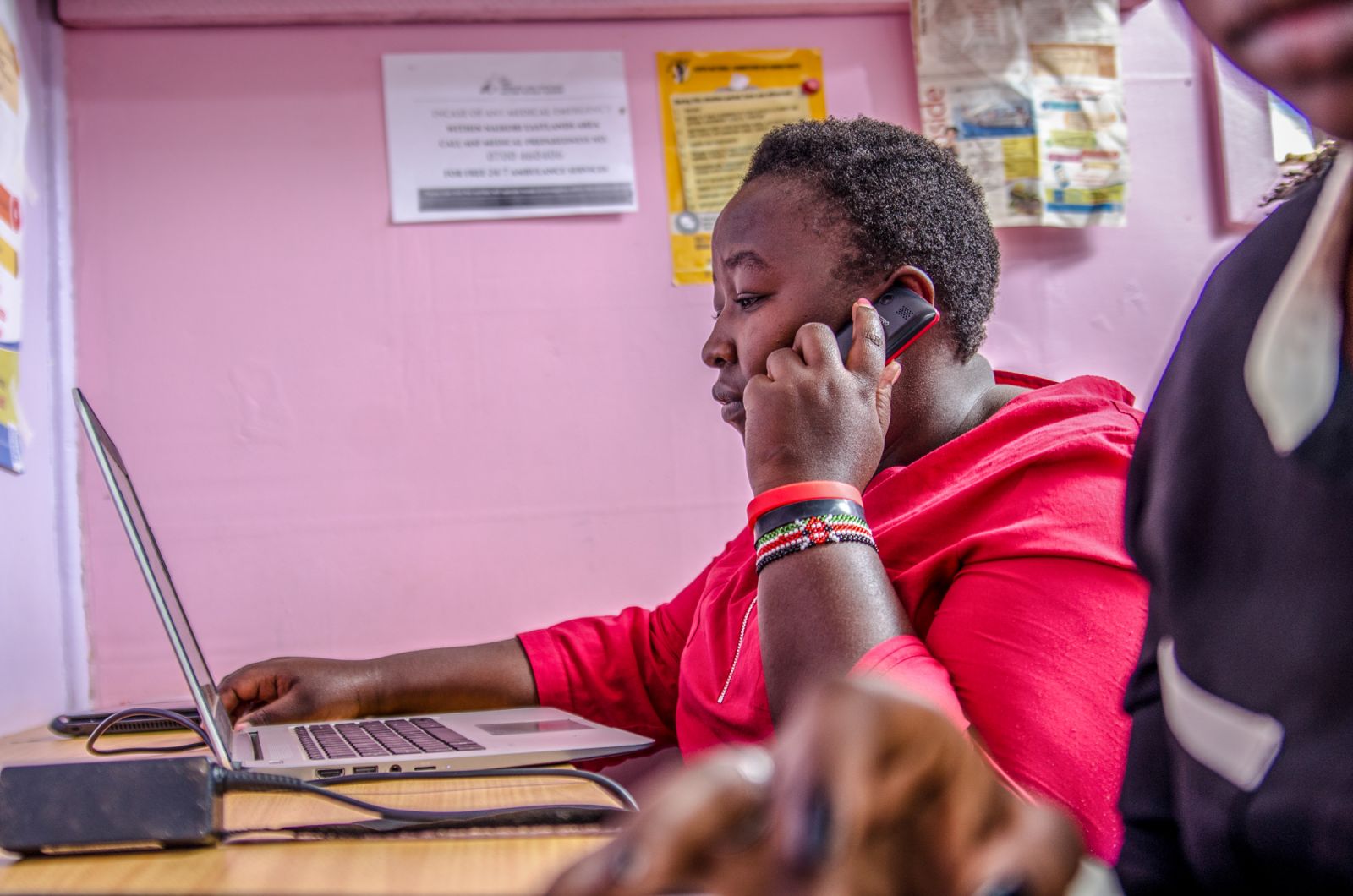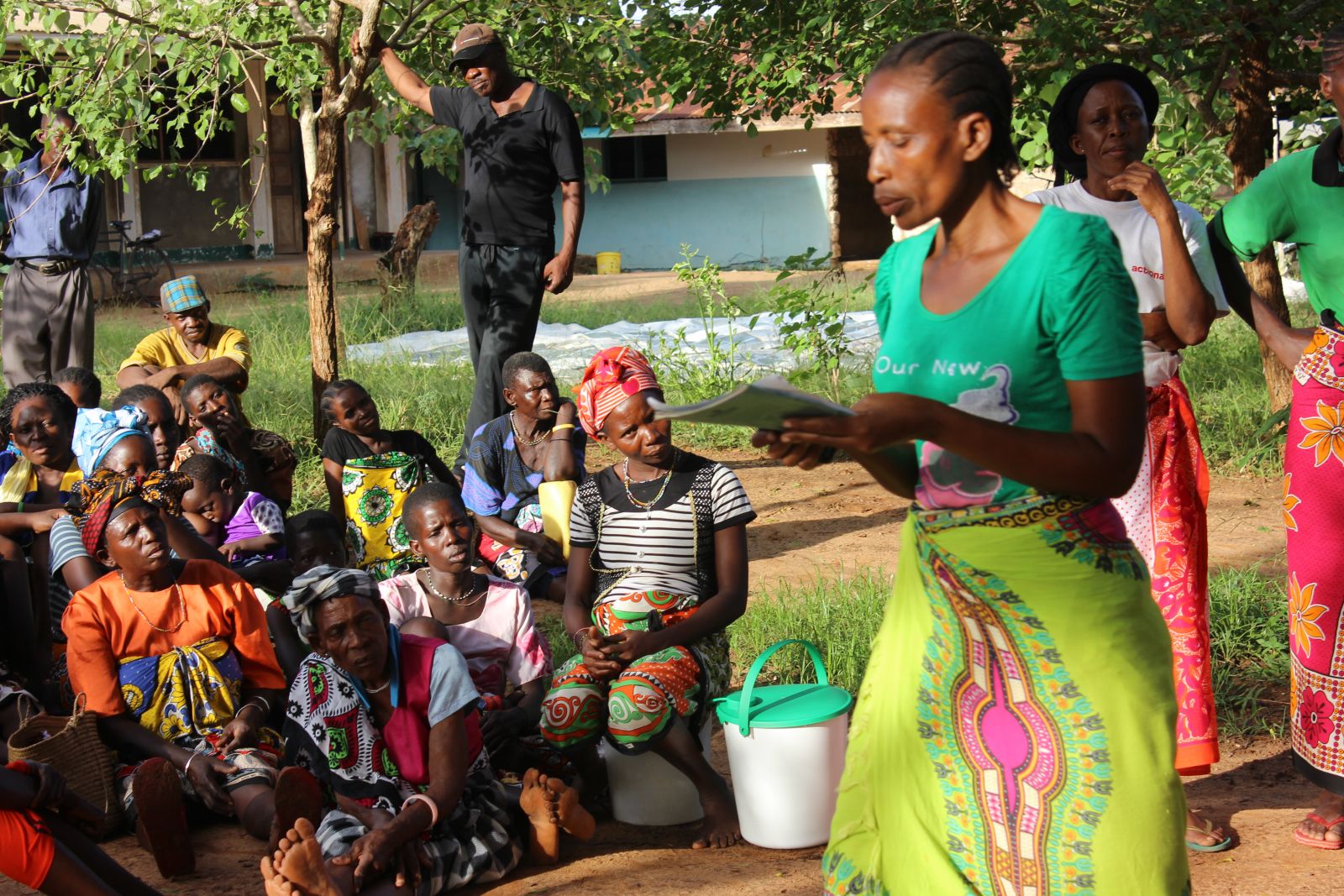Improving Accountability by Empowering Women and Vulnerable Communities
As a strong supporter of the Core Humanitarian Standard on Quality and Accountability (CHS), ActionAid International Kenya has a robust and thorough approach to quality and accountability. Not only is their work built upon their Human Rights Based Approach (HRBA), which promotes programming that leads to community empowerment, they also respond to the needs of people affected by crisis by encouraging women’s leadership, by learning from their experience to increase effectiveness and by embracing accountability at all levels.

Affected communities can request urgent help and report cases of violence via an SMS platform. Case operators are members of local communities
Putting women at the heart of aid work
ActionAid International Kenya focuses on vulnerable communities, especially on women, as their experience in humanitarian and development work shows that they suffer the most in crisis situations, due to gender discrimination and the lack of access to and control of resources. Therefore, they put a strong emphasis on engaging with women, and accordingly have developed their aid distribution and feedback systems prioritising and involving them. They have recognised that emergencies are opportunities to give women a chance to take on leadership roles. As a result, Action Aid International Kenya set up women-led ‘relief committees’, ‘community disaster management committees’ and women’s networks. These bodies are made up of people who live in affected areas and are elected by the community. ActionAid International Kenya heavily invests in these women institutions by providing essential training on needs assessments, targeting, accountability processes and protection. Some of the tasks that these committees and networks perform are:
- Working with various stakeholders for needs assessments
- Engaging with local governmental bodies to participate in and influence decision-making processes
- Identifying appropriate and relevant assistance, and prioritising local resources to support faster recovery
- Preparing registers of community members who need assistance, providing information on aid delivery and distributing goods
- Managing complaints response mechanisms
- Overseeing and updating accountability platforms, such as transparency boards, and promoting protection mechanisms at the community level.

A member of the Disaster Management Committee in Marafa reads out the distribution procedure
ActionAid International Kenya has introduced various measures to ensure accountability, these are clustered around five themes:
Participation and inclusion
Communities are empowered and supported to participate in response and development activities. These include: conducting needs assessments, developing targeting criteria, participating in procurement processes by raising quotations, analysing bids and being responsible for keeping track of aid distribution to recipients, informing communities about the timing of food distribution and distributing the items. ActionAid International Kenya also supports communities to hold governments to account on humanitarian and development issues by raising awareness of their citizens’ rights.
Information sharing
Timely communication is key in aid response, thus ActionAid International Kenya is using various communication tools and platforms to overcome the challenge of communicating with a large number of people in a vast area where physical access can be problematic. These platforms include Frontline SMS, use of transparency boards and public forums.
Complaints response mechanisms
ActionAid International Kenya encourages communities to raise complaints through public forums or by using complaint boxes. With their partners, they seek to act on complaints in a timely manner and give feedback at the following community meeting.
Internal accountability and development
Processes were introduced to ensure that staff and volunteers have a thorough understanding of their Code of Conduct and the CHS. Coaching, mentorship and training are also available. Action Aid Kenya equally provides the opportunity for communities and staff members to file complaints, which are taken seriously and acted upon. Furthermore, the organisation has whistleblowing, anti-sexual harassment, open Information and zero–tolerance-to-corruption policies in place and mechanisms for their enforcement.
Coordination
ActionAid International Kenya participates in the Kenya Humanitarian Partnership Team (KHPT). They are active in clusters and technical working group at the county and national level s to influence sector-wide disaster preparedness, to build capacity for response and to influence policy formulation and implementation at all levels.
At the county level, ActionAid International Kenya works with government representatives and partners to effectively coordinate interventions through the County Steering Group (CSG), of which it is a member. They also engage and coordinate with the Start Network and member organisations of the Disasters Emergency Committee (DEC) in Kenya to improve learning and minimise the duplication of efforts.
